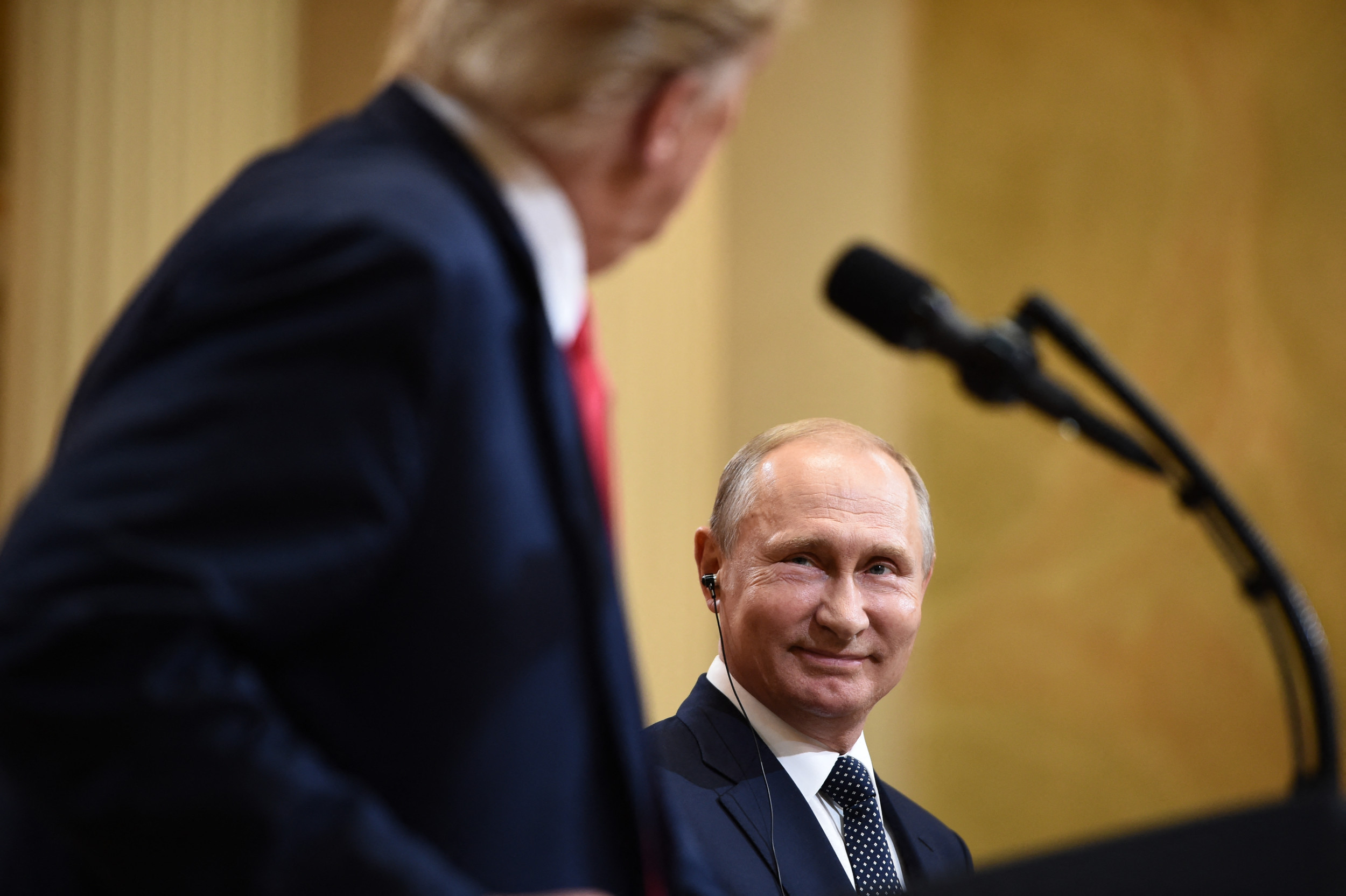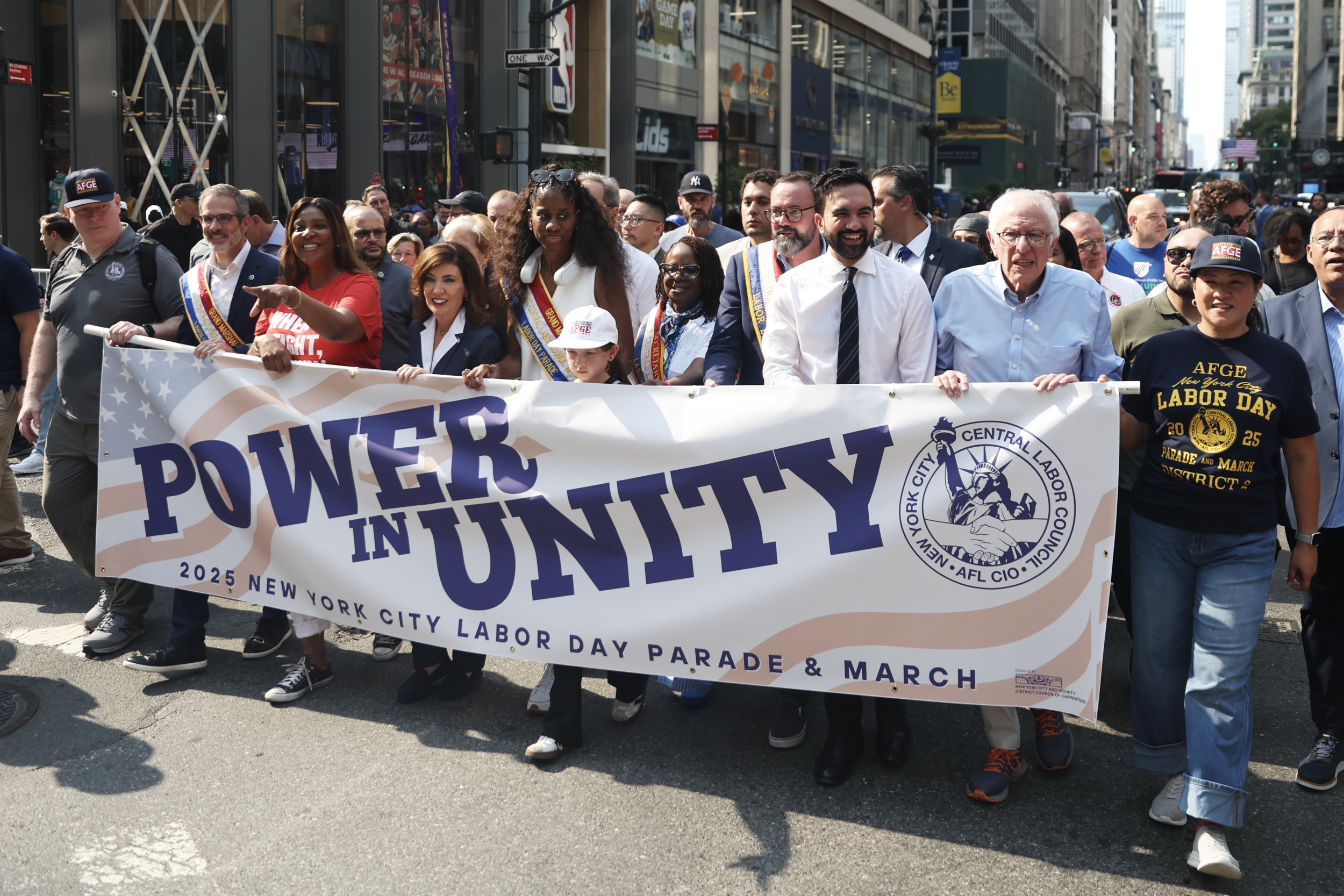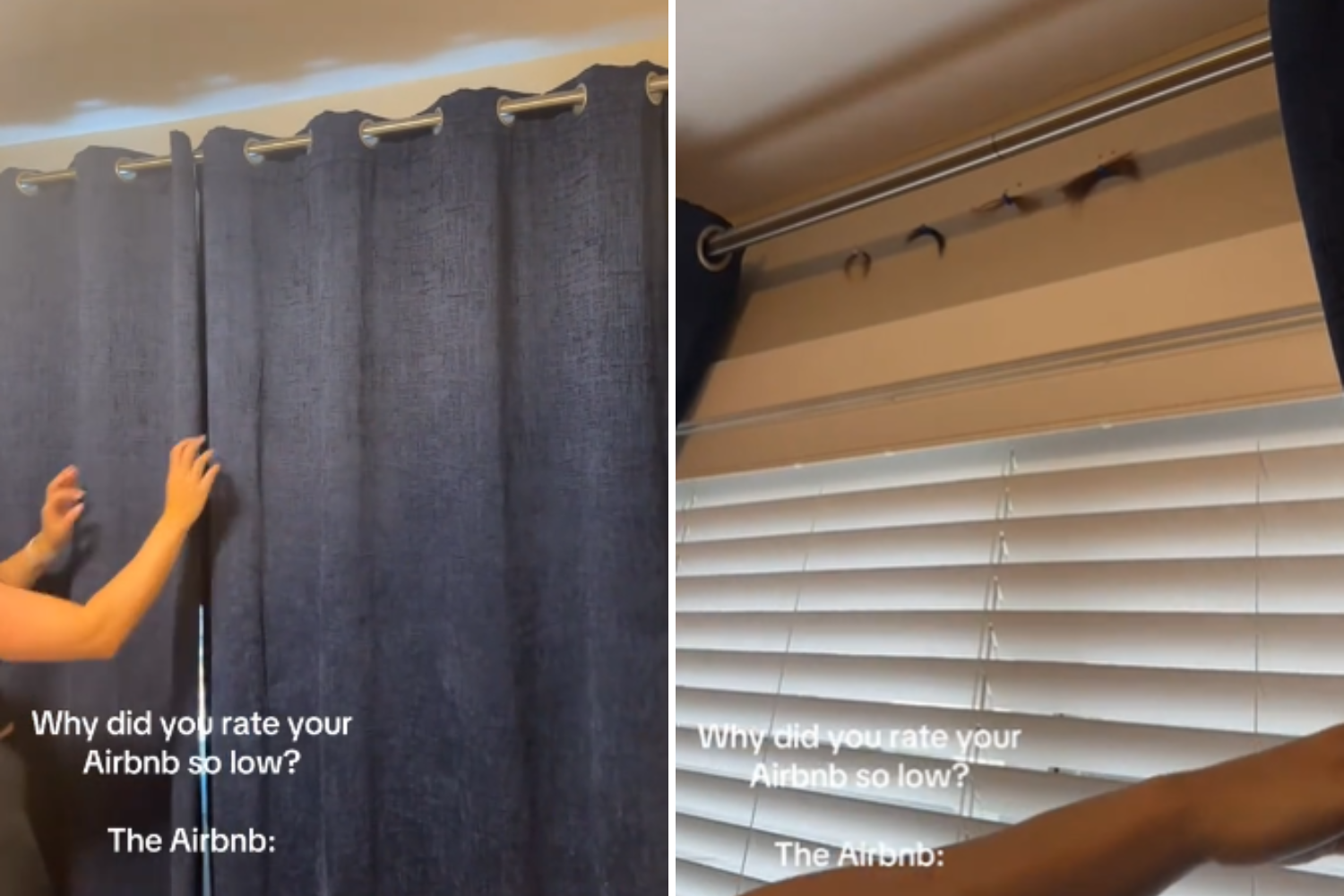
It’s a big, beautiful constitution. Absolutely, it is. It guarantees democracy. It says its “supreme value” is individual rights and freedoms. It promises political diversity, equality before the law, free speech, free elections, human dignity, privacy, freedom from torture, and the inviolability of the home. How can you go wrong with rights like these?
It’s the world’s greatest legal document. The best. Until you find out it’s the Russian constitution. Too bad. The promises in that document are about as trustworthy as being told your job is safe by President Donald Trump.
Now, with Trump questioning whether he has to obey our constitution, it might be well to remember the sad—the very sad—story of what happened when Russian President Vladimir Putin decided he didn’t have to follow the parts of the Russian constitution he didn’t like.

BRENDAN SMIALOWSKI/AFP via Getty Images
Ask the family of Putin opponents Boris Nemtsov and Alexei Navalny how they feel about rights in Russia after the former was shot and the latter was poisoned. Ask the survivors of the rich and powerful men that Putin once assured that their places were safe. At least seven of them died dropping out of windows. Remember, too, those who died in shootings, in mysterious hotel accidents, of illness in prison, or of inexplicable suicide.
Better yet, ask ordinary Russians minding their own business what they think of human rights. Some 800,000 of their children have been killed or severely wounded in a war waged in Ukraine at the whim of one man. Does the Russian constitution’s promise that “everyone has the right to life” look great to them?
Yes, Russia’s constitution guarantees rights—bigly—on paper. And so does our “Constitution.” But it’s just a bunch or words. Weak, low energy, words—a real disgrace some might say. This rule of law stuff is for whack jobs. Lunatics. Radical lefties. The lame-stream media. Don’t bet on me following them, Trump suggests.
But then again, he’s done more than suggest. American citizens are being deported without hearings. Other people with no chance to dispute it have been labelled gang members and sent to a gulag in El Salvador.
Media free speech is under attack. Some like ABC and Meta felt compelled to buy Trump off. He has sought to impeach judges. He has attacked the nation’s major law firms with executive orders. Some of them tried to buy him off, too. He has attacked universities. Columbia appeased him. Harvard is fighting back.
Are we on Putin’s path? Don’t be so sure were not. If the public would stand for it, do you doubt Trump’s attacks on his enemies would include a trip to El Salvador or—oopsie—a fall from a window? Can the words on that scrap of paper called the Constitution stop him?
No way. Not happening. And don’t be happy Trump is sticking it to the powerful first. Be patient, they’ll get around to you once they’ve fully tamed big tech. Not patronizing Trump-aligned retailers? Not subscribing to the approved news and entertainment sources? Declining to contribute money to him and his cronies? They can get at you. They know your habits. Everyone does. Just ask Elon Musk what’s on government computers about you. Ask Google and Facebook and Instagram and Amazon—the guys with the special seats at Trump’s inauguration. They know where you sleep, what you do, where you work, and what you look at. They can take you down anytime they want.
Can the courts stop Trump? They have struck down his deportation schemes. They have ruled against his targeting of law firms. They have protected the idea of due process and the requirement that government action must be rationally related to something good for the country rather than one man. But they are hanging by a thread.
Will Trump obey the law? The courts have tools to compel him, including fines and blocking Trump-initiated lawsuits. But will they use them or go out with a whimper? Right now, a drama is playing out in the Maryland court where Trump is defying an order to facilitate the return of a deported migrant. Will he give in? Will the Supreme Court back up the Maryland judge if she uses sanctions? If they don’t, the consequences will be yuuuge.
Thomas G. Moukawsher is a former Connecticut complex litigation judge and a former co-chair of the American Bar Association Committee on Employee Benefits. He is the author of the new book, The Common Flaw: Needless Complexity in the Courts and 50 Ways to Reduce It.
The views expressed in this article are the writer’s own.





